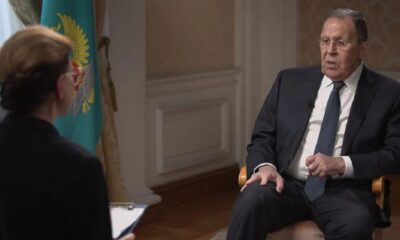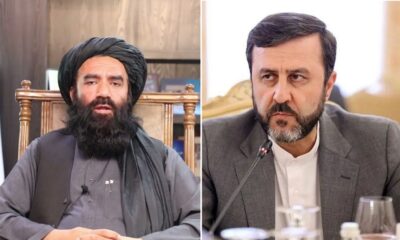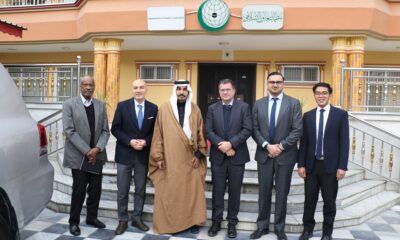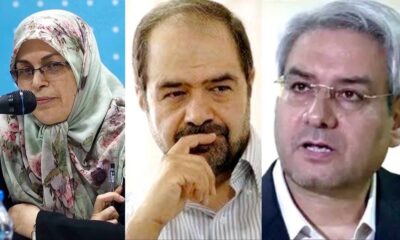Business
World Bank works to redirect frozen funds for humanitarian aid only

The World Bank is finalizing a proposal to deliver up to $500 million from a frozen Afghanistan aid fund to humanitarian agencies, people familiar with the plans told Reuters, but it leaves out tens of thousands of public sector workers and remains complicated by U.S. sanctions.
Board members will meet informally on Tuesday to discuss the proposal, hammered out in recent weeks with U.S. and U.N. officials, to redirect the funds from the Afghanistan Reconstruction Trust Fund (ARTF), which has a total of $1.5 billion, Reuters reported.
Afghanistan’s 39 million people face a collapsing economy, a winter of food shortages and growing poverty three months after the the former government collapsed.
Afghan experts said the aid will help, but big gaps remain, including how to get the funds into Afghanistan without exposing the financial institutions involved to U.S. sanctions, and the lack of focus on state workers, the sources said.
The money will go mainly to addressing urgent health care needs in Afghanistan, where less than 7% of the population has been vaccinated against the coronavirus, they said.
For now, it will not cover salaries for teachers and other government workers, a policy that the experts say could hasten the collapse of Afghanistan’s public education, healthcare and social services systems.
They warn that hundreds of thousands of workers, who have been unpaid for months, could stop showing up for their jobs and join a massive exodus from the country.
The World Bank will have no oversight of the funds once transferred into Afghanistan, said one of the sources familiar with the plans. A U.S. official stressed that UNICEF and other recipient agencies would have “their own controls and policies in place.”
“The proposal calls for the World Bank to transfer the money to the U.N. and other humanitarian agencies, without any oversight or reporting, but it says nothing about the financial sector, or how the money will get into the country,” the source said, calling U.S. sanctions a major constraint.
While the U.S. Treasury has provided “comfort letters” assuring banks that they can process humanitarian transactions, concern about sanctions continues to prevent passage of even basic supplies, including food and medicine, the source added.
“We’re driving the country into the dust,” said the source. Crippling sanctions and failure to take care of public sector workers will “create more refugees, more desperation and more extremism.”
A State Department spokesperson confirmed that Washington is working with the World Bank and other donors on how to use the funds, including potentially paying those who work in “critical positions such as healthcare workers and teachers.”
The spokesperson said the U.S. government remains committed to meeting the critical needs of the Afghan people, “especially across health, nutrition, education, and food security sectors … but international aid is not a silver bullet.”
Established in 2002 and administered by the World Bank, the ARTF was the largest financing source for Afghanistan’s civilian budget, which was more than 70% funded by foreign aid.
The World Bank suspended disbursements after the Islamic Emirate of Afghanistan (IEA) takeover. At the same time, Washington stopped supplying U.S. dollars to the country and joined in freezing some $9 billion in Afghan central bank assets and halting financial assistance.
One major problem is the lack of a mechanism to monitor disbursements of funds in Afghanistan to ensure Taliban leaders and fighters do not access them, a third source said.
Business
Afghanistan seeks expanded ties with Russia in energy, mining and infrastructure
TASS reported that Kabul is also prepared to cooperate with Moscow in the extraction of mineral resources.

Afghanistan has expressed strong interest in broadening trade and economic cooperation with Russia, with a particular focus on energy, mining and infrastructure projects, according to Russia’s TASS news agency.
In an interview with TASS, Afghanistan’s Ambassador to Moscow, Gul Hassan, said Kabul is keen to import oil and gas from Russia as part of efforts to deepen bilateral economic ties.
He noted that trade relations between the two countries are progressing and that, if key obstacles—especially banking restrictions—are addressed, Afghanistan could also import medicines, industrial goods, grain, vegetable oils and other commodities from Russia.
In return, the ambassador said Afghanistan is ready to export fresh and dried fruits, vegetables, medicinal plants, carpets and mineral resources to the Russian market, adding that expanding export-import operations could significantly increase bilateral trade volumes.
He also revealed plans to open an exhibition of Afghan products in Moscow, which he said would help boost trade turnover.
TASS reported that Kabul is also prepared to cooperate with Moscow in the extraction of mineral resources.
Hassan described the economy as a central pillar of Afghanistan’s foreign policy, emphasizing the government’s goal of positioning the country as a key link in regional economic integration and attracting foreign investment.
He noted that Russian companies have long shown interest in Afghanistan’s industrial, mining and infrastructure sectors.
The ambassador further told TASS that Russian firms are already in talks with relevant Afghan authorities on the construction of small hydroelectric power plants.
Representatives of several Russian companies have reportedly visited Afghanistan and held meetings with officials and technical experts.
According to Hassan, practical steps toward cooperation in the energy and power generation sectors are expected in the near future, pointing to a potential new phase in Afghan-Russian economic relations.
Business
Pakistan, China plan to extend CPEC to Afghanistan, revive trilateral framework
The proposed CPEC expansion into Afghanistan is seen as a move to enhance regional economic integration amid shifting geopolitical dynamics.
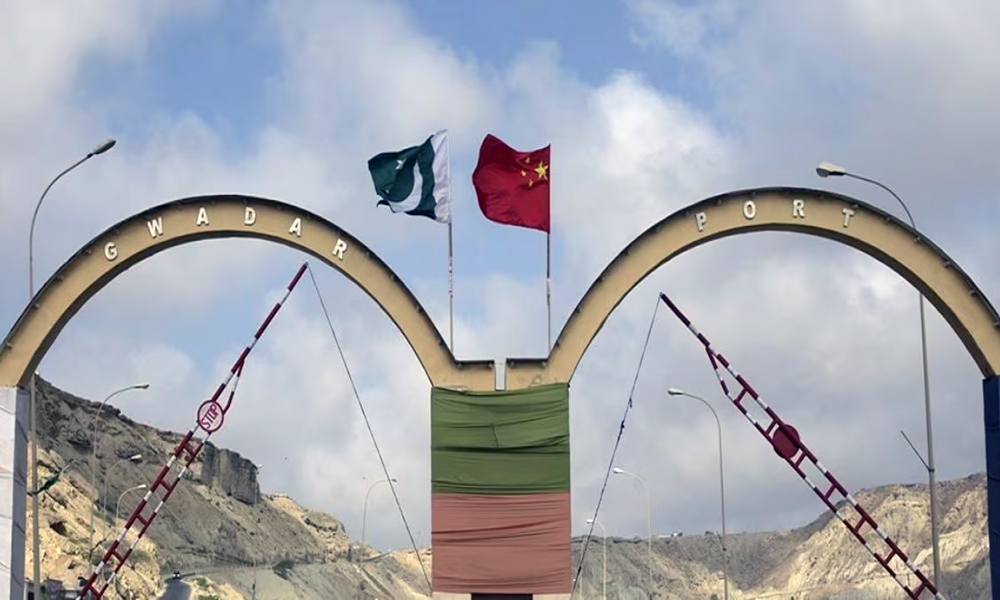
Pakistan and China are moving forward with plans to extend the China-Pakistan Economic Corridor (CPEC) into Afghanistan, a strategic step aimed at bolstering regional connectivity and economic cooperation. The expansion, along with the revival of the Pakistan-China-Afghanistan trilateral framework, was discussed in a recent briefing to the Pakistani Senate Standing Committee on Foreign Affairs.
According to Pakistan Today, officials from Pakistan’s Ministry of Foreign Affairs outlined the details during a session in Islamabad, where they reviewed key aspects of Pakistan’s foreign relations, regional developments, and economic diplomacy.
Officials emphasized that Pakistan’s relationship with China remains strong, underscoring the “all-weather” strategic partnership between the two nations. Strengthening ties with Beijing, they stated, continues to be a cornerstone of Pakistan’s foreign policy. This includes unwavering support for China’s position on regional and international issues, particularly the One-China policy and matters related to territorial integrity.
The briefing also touched upon China’s consistent backing of Pakistan in various areas, including sovereignty, economic stability, counter-terrorism, and support for Pakistan’s exit from the Financial Action Task Force (FATF) grey list.
The Kashmir issue was also addressed, with officials noting that China considers it an unresolved matter and advocates for a peaceful resolution in line with UN Security Council resolutions.
The proposed CPEC expansion into Afghanistan is seen as a move to enhance regional economic integration amid shifting geopolitical dynamics. Officials stated that reviving the trilateral framework is part of broader efforts to foster greater cooperation and connectivity in the region, with an eye on long-term stability and prosperity.
The move also reflects both countries’ desire to further integrate Afghanistan into the regional economic landscape, a key element in fostering peace and development.
Business
Uzbekistan–Afghanistan trade rises to $1.6 billion in 2025
Trade relations remain largely export-driven, with Uzbekistan supplying Afghanistan primarily with food products, energy resources, and industrial goods.
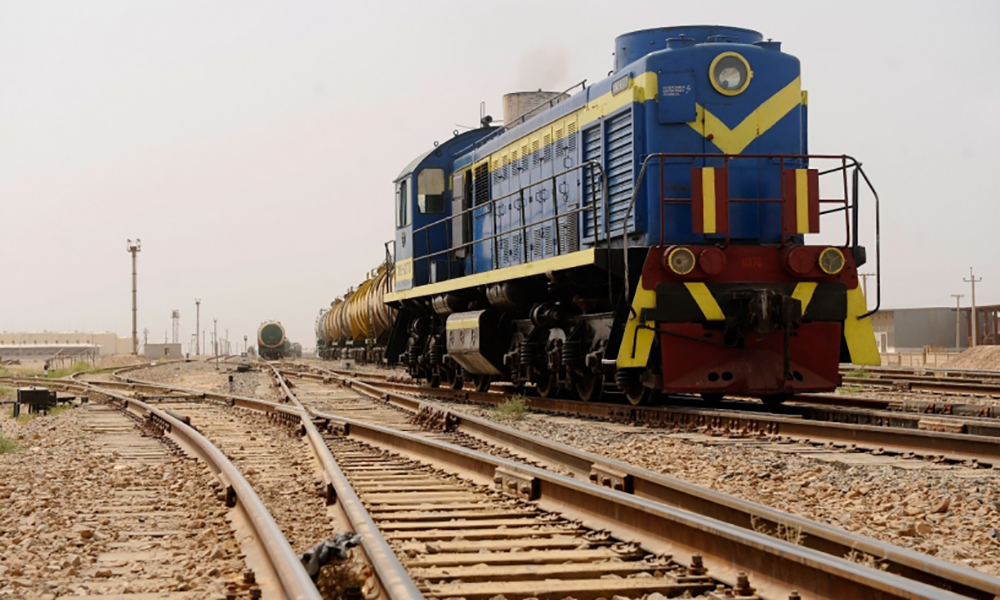
Trade between Uzbekistan and Afghanistan rose sharply in 2025, reaching $1.6 billion, according to official data released by Uzbekistan’s National Statistics Committee.
The figure represents a 45.5 percent increase from $1.1 billion in 2024 and an 84.4 percent rise compared with 2023, when bilateral trade stood at $867.5 million, highlighting rapid growth in economic exchanges between the two countries.
Uzbekistan’s exports to Afghanistan accounted for the vast majority of the trade volume, totaling $1.5 billion, or 93.8 percent of overall bilateral turnover. Trade relations remain largely export-driven, with Uzbekistan supplying Afghanistan primarily with food products, energy resources, and industrial goods.
The surge in trade comes as Uzbekistan’s total foreign trade turnover reached $81.2 billion in 2025, reflecting broader efforts to expand and diversify external economic ties. By the end of the reporting period, Uzbekistan maintained trade relations with 210 countries.
China remained Uzbekistan’s largest trading partner, accounting for 21.2 percent of total trade, followed by Russia (16.0 percent), Kazakhstan (6.1 percent), Türkiye (3.7 percent), and the Republic of Korea (2.1 percent).
The latest figures underscore strengthening economic ties between Uzbekistan and Afghanistan amid efforts to boost regional trade and connectivity.
-

 Latest News2 days ago
Latest News2 days agoAfghanistan to grant one- to ten-year residency to foreign investors
-

 Latest News5 days ago
Latest News5 days agoTerrorist threat in Afghanistan must be taken seriously, China tells UNSC
-

 Sport4 days ago
Sport4 days agoIndonesia shock Japan to reach historic AFC Futsal Asian Cup final
-

 Sport5 days ago
Sport5 days agoMilano Cortina 2026 Winter Olympics: What You Need to Know
-

 Sport2 days ago
Sport2 days agoIran clinch AFC Futsal Asian Cup 2026 in penalty shootout thriller
-

 Latest News5 days ago
Latest News5 days agoUS Justice Department to seek death penalty for Afghan suspect in National Guard shooting
-

 Latest News3 days ago
Latest News3 days agoAfghanistan says Pakistan is shifting blame for its own security failures
-
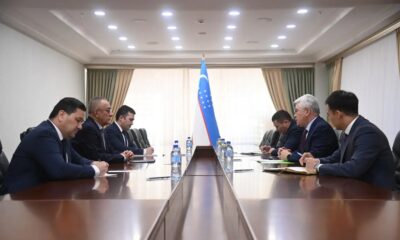
 Latest News5 days ago
Latest News5 days agoUzbekistan, Kazakhstan discuss cooperation on Afghanistan




